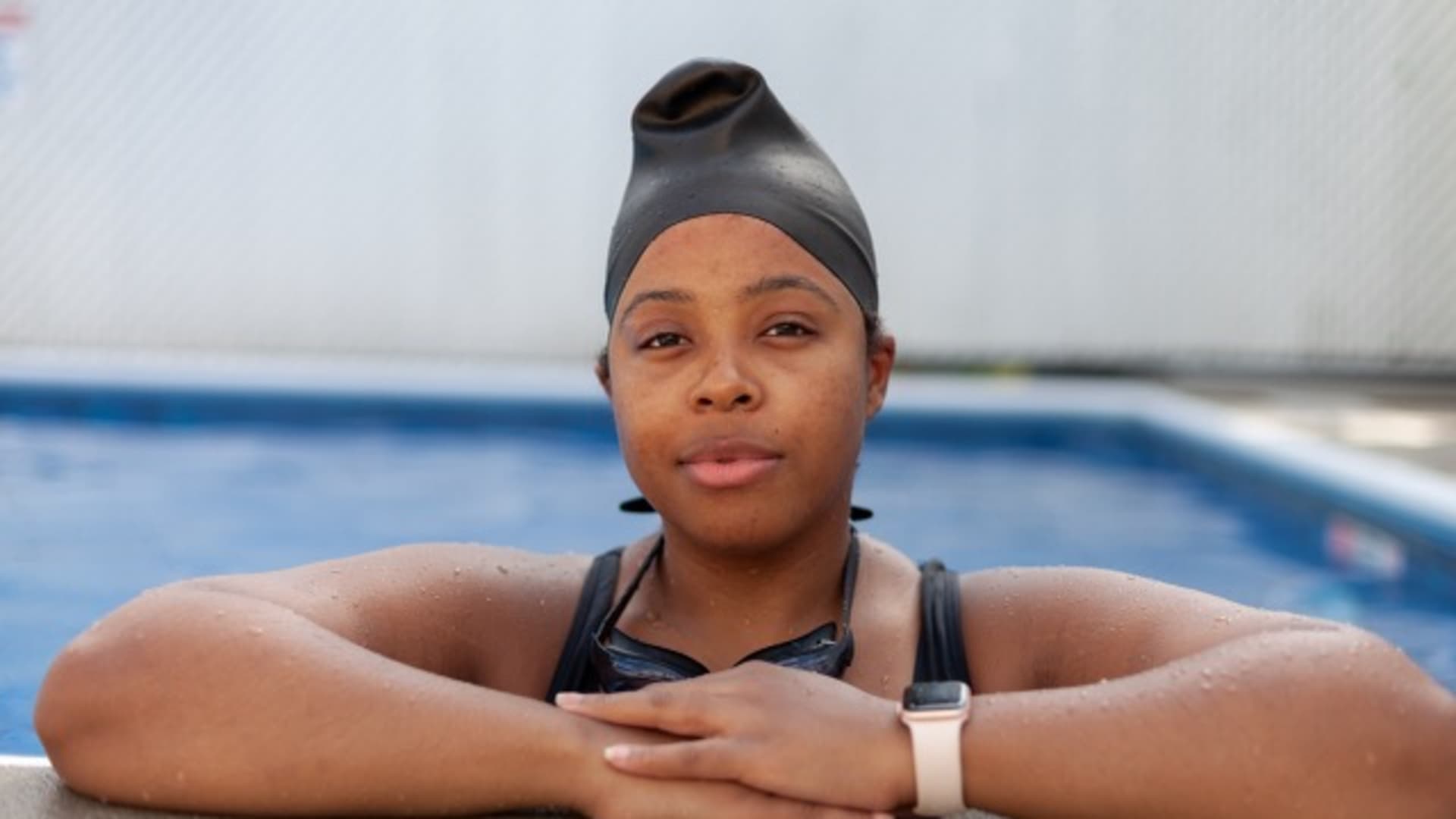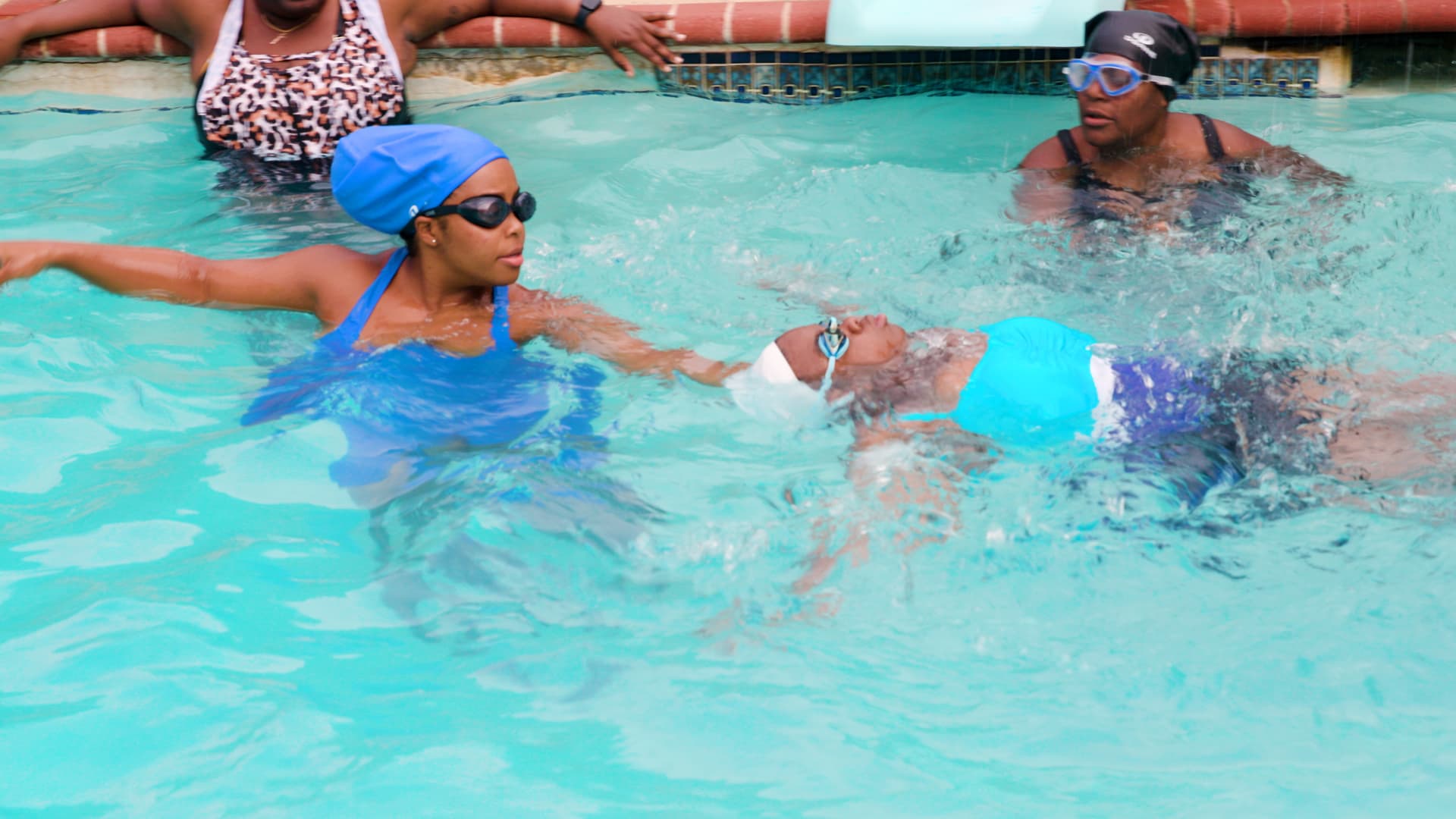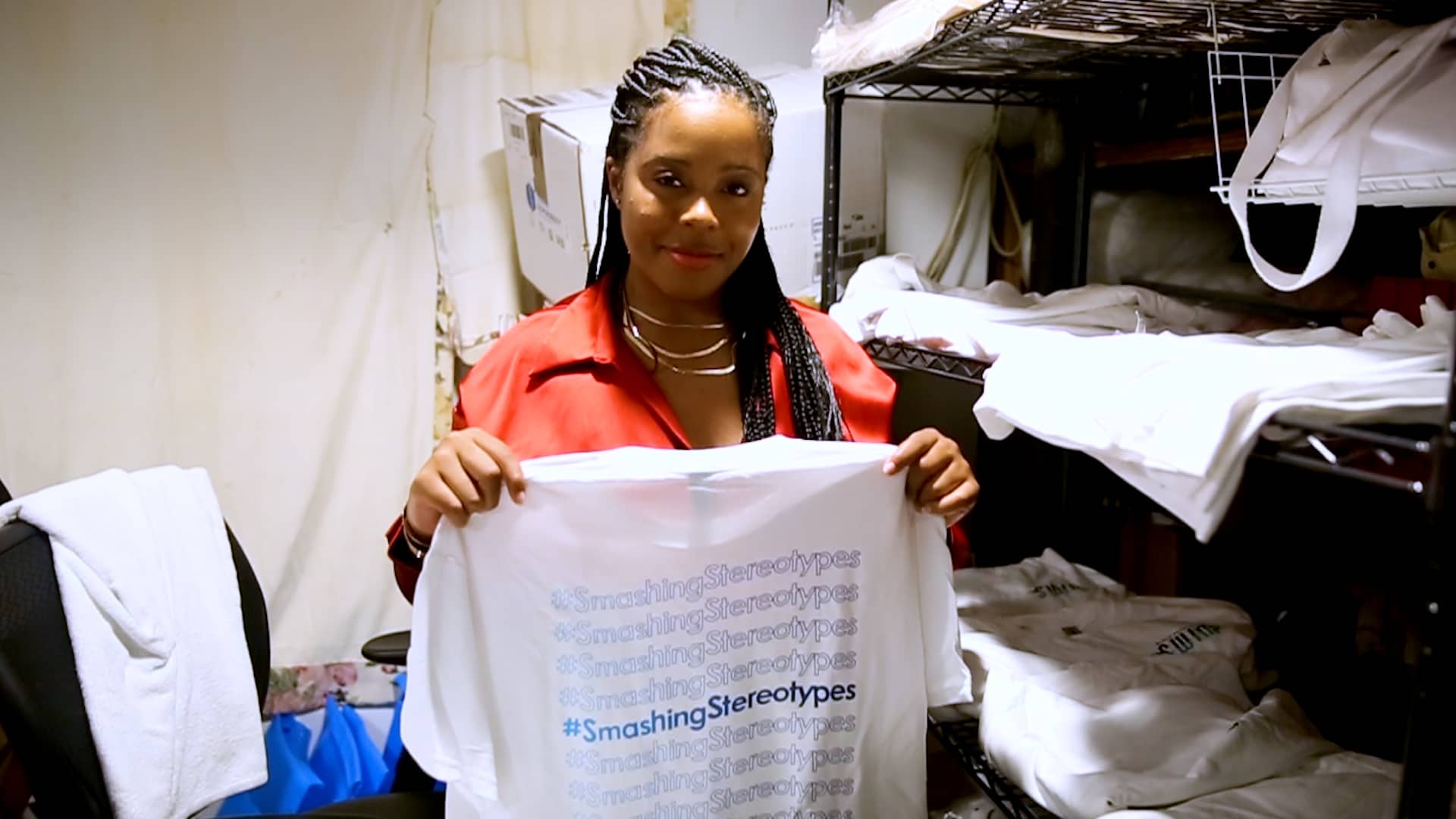
In 2019, one tweet sparked the beginnings of Paulana Lamonier's small business.
When she tweeted that she wanted to teach 30 Black people how to swim in Long Island, New York, the response was overwhelming: She got hundreds of requests for lessons from all over the country. There are still people on the waiting list, she says.
From there, the Haitian-American's business, Black People Will Swim, was born. The name is both a call to action and a call for more inclusion within swimming, Lamonier says.
Within a couple of years, the 31-year-old was able to raise enough money to secure a pool, hire swim coaches and begin teaching students.
Get Tri-state area news and weather forecasts to your inbox. Sign up for NBC New York newsletters.
During the summer of 2021, Lamonier taught 60 Black people to swim, far surpassing her goal of 30. And in 2022, she says there were about 100 students in the program.
A passion for swimming
Lamonier's mother put her into swim lessons when she was around 12, but she didn't take them seriously at first.
Money Report
"Throughout my years growing up, I really didn't maintain swimming. I kind of lost it," she says. "So when I got to college, I had to relearn how to swim."
And she did. While attending CUNY York College in Queens, New York, where she studied journalism, Lamonier joined the swim team and eventually became the captain.

After graduating in 2013, Lamonier knew she wanted to continue swimming. She began working at the local YMCA in Jamaica, Queens, where she learned about the basics of swim instruction, including how to make lesson plans for students.
Lamonier worked there for about four years until she stopped to focus on growing her journalism career as a freelance social media strategist. However, she still gave private swim lessons on the side to earn extra money.
"It would probably be like 100 bucks for four one-hour lessons," she says. "That is a steal."
Growing her business
Although Lamonier is no stranger to swim lessons, starting a small business came with a new set of challenges.
In the beginning, one of the hardest obstacles was getting a pool. Lamonier tried local colleges and universities, but many had been converted into Covid-19 vaccination sites. Eventually, someone who owned a private pool reached out and agreed to let her rent it.
Although Black People Will Swim officially launched in January 2020, it wasn't able to begin holding swim lessons until July 2021, due to the Covid-19 pandemic.

There was also the matter of funding. Lamonier used about $5,000 from her savings to launch the business, which involved creating an LLC and hiring a business coach and a creative director.
Since then, she has raised nearly $136,000 from different grants, including a $10,000 grant from Adidas and a $25,000 grant from American Express, both of which aim to support women founders creating change in sports.
Lamonier was also able to raise about $8,500 throughout 2020 and 2021 via an online crowdfunding campaign.
The business brought in about $16,000 in sales in 2021 and about $19,000 in 2022.
Lamonier admits that running a swim school "is quite expensive." It costs $45 an hour, or about $720 per week, to rent the pool. Additionally, she pays her four instructors $18 an hour and her aquatics director $25 an hour.
After expenses, she's able to pay herself about $500 to $1,000 per month.
She charges between $160 and $210 for six-week swim packages, and accepts students two and older of all levels.
Smashing the stereotype that Black people don't swim
Although lessons are open to everyone, Lamonier specifically focuses on teaching Black people to combat an age-old stereotype that Black people can't or simply don't swim.
The harmful stereotype stems from a historic and systemic lack of access to swimming facilities during times of segregation in the U.S. dating back to the early 20th century.
Racist policies and violence committed by white Americans across the country often prevented Black Americans from accessing public pools and recreational spaces, historian Jeff Wiltse writes in his book, "Contested Waters: A Social History of Swimming Pools in America."

Although racial segregation is now illegal, the stereotypes born from it continue to impact the Black community, and swimming is a prime example.
"We had a student of ours who said she couldn't swim because her bones are too dense. And I realized, 'OK, if she's taking that as her truth, how many other people actually believe that they can't?'" Lamonier says. From there, she realized the company's mission: "Smashing the stereotype that Black people don't swim."
Lamonier wants to help students of all ages unlearn that type of thinking. Her goal is to eventually open her own swimming facility in Long Island, and she's in the process of applying for more small business grants.
"I want Black People Will Swim to be one of the first Black-owned swimming facilities on Long Island," she says. "And not only for Black people, but for Black and brown people to see themselves and see that it's possible."
"This one swimming facility would be for us, by us."
Sign up now: Get smarter about your money and career with our weekly newsletter






